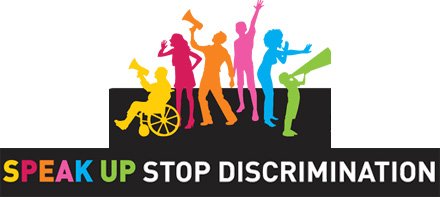What is discrimination?

WHAT IS DISCRIMINATION?
Caste systems are a form of social and economic governance that is based on principles and customary rules
Caste systems involve the division of people into social groups (castes) where assignments of rights are determined by birth, are fixed and hereditary. The assignment of basic rights among various castes is both unequal and hierarchical, with those at the top enjoying most rights coupled with least duties and those at the bottom performing most duties coupled with no rights. The system is maintained through the rigid enforcement of social ostracism (a system of social and economic penalties) in case of any deviations.
Inequality is at the core of the caste system.
Those who fall outside the caste system are considered "lesser human beings", "impure" and thus "polluting" to other caste groups. They are known to be "untouchable" and subjected to so-called "untouchability practices" in both public and private spheres.
"Untouchables" are often forcibly assigned the most dirty, menial and hazardous jobs, such as cleaning human waste. The work they do adds to the stigmatisation they face from the surrounding society.
The exclusion of 'caste-affected communities' by other groups in society and the inherent structural inequality in these social relationships lead to high levels of poverty among affected population groups and exclusion from, or reduced benefits from development processes, and generally precludes their involvement in decision making and meaningful participation in public and civil life.
The division of a society into castes is a global phenomenon not exclusively practiced within any particular religion or belief system.
In South Asia, caste discrimination is traditionally rooted in the Hindu caste system. Supported by philosophical elements, the caste system constructs the moral, social and legal foundations of Hindu society. Dalits are 'outcastes' or people who fall outside the four-fold caste system consisting of theBrahmin, Kshatriya, Vysya and Sudra. Dalits are also referred to as Panchamas or people of the fifth order. However caste systems and the ensuing caste discrimination have spread into Christian, Buddhist, Muslim and Sikh communities.
Caste systems are also found in Africa, other parts of Asia, the Middle East, and the Pacific and in Diaspora communities around the world. In Japan association is made with Shinto beliefs concerning purity and impurity, and in marginalized African groups the justification is based on myths.
Caste discrimination affects approximately 260 million people worldwide, the vast majority living in South Asia.
Caste discrimination involves massive violations of civil, political, economic, social and cultural rights. It is often outlawed in countries affected by it, but a lack of implementation of legislation and caste-bias within the justice systems largely leave Dalits without protection.
GRIEVANCE REDRESSAL COMMITTEE
Equal Opportunity Cell
SC/ST Cell
Whom to Approach?
In Case of any such incident Kindly approach to DSW(Mob. +919816400546) and register a Complaint or Register it Online Here.